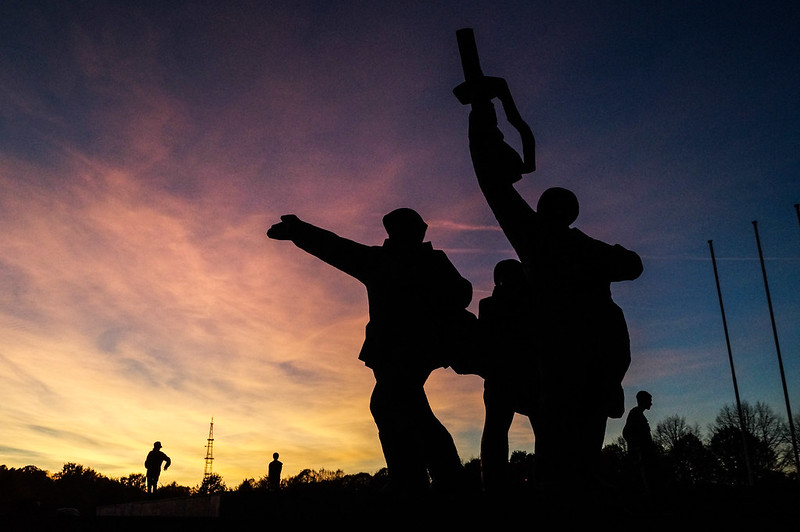The plight of Russians on the run for saying no
The Silema website recounts the conditions of refugees who fled not to fight in the war against Ukraine interned in the Mutsenieka camp. The dramas of those who are on the margins of the ongoing conflict and are not welcomed by either side.
Riga (AsiaNews/Agencies) - According to Latvia's customs offices, 13,683 people crossed the border from Russia and Belarus illegally in 2023, and only 428 were recognised as refugees for humanitarian reasons.
In 2024 a total of only 126 people tried to enter, with a tighter border surveillance regime, and only a few were allowed to stay legally in the Baltic country. These are people seeking a better life and fleeing the war, which yesterday showed again all its horror with the missile fired at the children's hospital in Kiev. Men who do not want to die or kill, are afraid of mobilisation or of being forcibly recruited into the invaders' army.
They are citizens of Russia, or migrants from Central Asia living in Russia, who aspire to obtain European visas even if they cross the borders clandestinely, turn themselves in to the authorities and ask for asylum. While their claims are assessed, they are detained in camps, hostels or directly in prison. The Sistema website has tried to get in touch with them as they await their fate for months or years.
One of the refugee camps is located in Mutsenieka, a few kilometres from Riga, the capital of Latvia, just beyond the huge Ikea complex. If you go there by bus, at the last stops you no longer find any Latvian citizens, and you are together with Nigerians, Syrians, Libyans, Moroccans, Tajiks, Uzbeks and Russians of mixed nationality, those most likely to be sent to the front, in a mixture of national languages and customs. In Mutsenieka there are two centres, one open and one closed to the public, i.e. a hostel and a prison, with very similar living standards.
In the 'open' centre, the difference is the noise and cheerfulness, despite the less than favourable conditions. There are many volunteers who bring something to eat, although the daily menu does not go much beyond a bowl of plain rice. In the 'closed' centre, as Said, one of the refugees, puts it, 'it is very quiet, but the food is much better'; he was locked up for six months, and now lives in the hostel, free to talk to journalists. His friend Ibrahim (fictitious name, lest he be repatriated to Russia), was held in the lager for two years.
One of the correspondents managed to get the prison door open by shouting in Russian, until one of the guards came out and said 'I knew that only a Russian can come to these places with his legs, who is he supposed to meet? However, all inmates have the right to meet people by calling with the prison phone and agreeing to an appointment, and subjecting themselves to yet another search. The Sistema correspondents managed to meet Ibrahim, in a tracksuit, well washed and shaved, cheerful and helpful, who speaks Russian without an accent.
The refugee said he was an official of one of the prefectures of a city in the Caucasus, and while repairing one of the computers, he had found documents with a list of people who were to be kidnapped, for ransom or to be sent to the war in Ukraine. Ibrahim decided to warn all the people threatened with kidnapping, and the next day the mother of one of them came to the prefecture to complain, saying she was going to write to Putin, and only thanks to a good person had she managed to get her son away.
The same evening, Ibrahim fled to Poland, but was stopped at the Belarusian border, until by other means, after vicissitudes between France and Turkey, he ended up in the Latvian lager, trying to avoid repatriation to Russia, which 'would be a death sentence'. There are many stories like these, they are the dramas of those who stand on the margins of the ongoing conflict and are not welcomed by one side or the other, because there is no side where only 'the good' live.
Photo: Flickr / Eduards Osis







.png)










